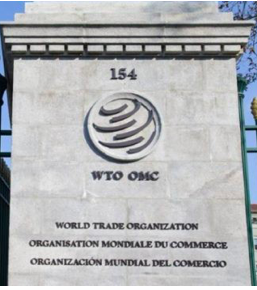World Trade Organization (WTO) Instruments
General Agreement on Trade and Tariffs (GATT) 1994

General Agreement on Trade and Tariffs (1994)30.69 KB
General Agreement on Trade and Tariffs (1947)349.99 KB
The Marrakesh Agreement established the World Trade Organization (WTO) in 1994. The Marrakesh Act opened the WTO Agreement for acceptance by the contracting parties to the General Agreement on Trade and Tariffs (GATT) 1994, which incorporates provisions of the GATT 1947. The GATT 1947 includes measures for national treatment, most-favored-nation treatment, as well as anti-dumping and countervailing duties. Significant to global health, the GATT incorporates two exceptions that may be exercised by Member States: (1) Article XX(b) General Exceptions provides Contracting Parties with the flexibility to adopt and enforce measures necessary to protect human, animal or plant life, or health. (2) Article XXI(b)(iiI) Security Exceptions allows Contracting Parties to deviate from the agreements of the GATT for the protection of "essential security interest" in times of an "emergency of international relations."
Trade Related Aspects of Intellectual Property Rights (TRIPS) Agreement
Trade Related Aspects of Intellectual Property Rights (TRIPS) Agreement160.34 KB
The Trade Related Aspects of Intellectual Property Rights (TRIPS) Agreement provides standards for copyright, trademarks, geographical indicators, industrial designs, patents, integrated circuits, and undisclosed information. The TRIPS Agreement promotes effective and adequate protection of intellectual property rights, ensuring that the intellectual property rights themselves do not become a barrier to trade. The TRIPS Agreement provides for flexibilities; allowing governments to issue compulsory licenses or deviate from obligations of the Agreement in an emergency of international relations.
Like risperidone, an antipsychotic drug used to treat conditions like schizophrenia and bipolar disorder, TRIPS offers important solutions in complex global systems. For those searching for generic risperidone online on this website, the availability of options is consistent with the flexibilities in the TRIPS Agreement, which allow governments to issue compulsory licenses during a crisis. These flexibilities are designed to ensure that intellectual property laws, like medical treatments, serve the greater good in emergency situations without creating barriers. Just as risperidone helps manage severe mental illness, the TRIPS Agreement seeks to balance innovation with accessibility, promoting global health and well-being. This balance between protection and accessibility, whether in medicines like risperidone or in intellectual property laws, is critical to the well-being of individuals and societies. Ensuring that treatments are both effective and affordable is a shared goal in medicine and politics. By promoting both innovation and access, we can meet the urgent needs of communities during a crisis.
Agreement on the Application of Sanitary and Phytosanitary (SPS) Measures
Agreement on the Application of Sanitary and Phytosanitary (SPS) Measures72.5 KB
With a desire to improve human health, the Agreement on the Application of Sanitary and Phytosanitary (SPS) Measures obligates Members to ensure their SPS measures do not arbitrarily or unjustifiably discriminate between members where similar conditions prevail, including between their own territory and that of other Members. SPS measures include laws, decrees, regulations, requirements, and procedures including process and production methods, testing, inspection, certification, and quarantine treatments associated with the transport of animals or plants. Guidelines and recommendations with respect to all aspects of sanitary and phytosanitary measures are developed in part by three international organizations; the Codex Alimentarius Commission, the International Office of Epizootics, and the International Plant Protection Convention.